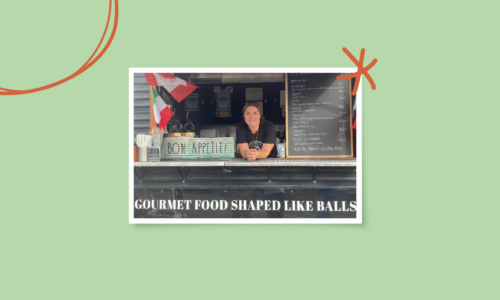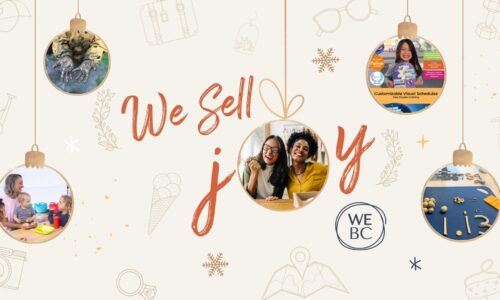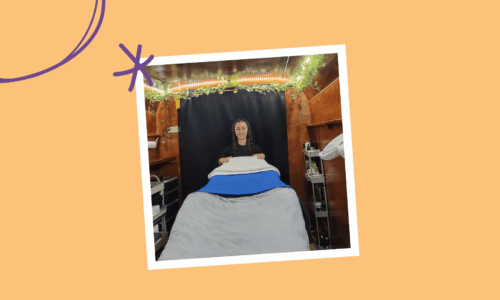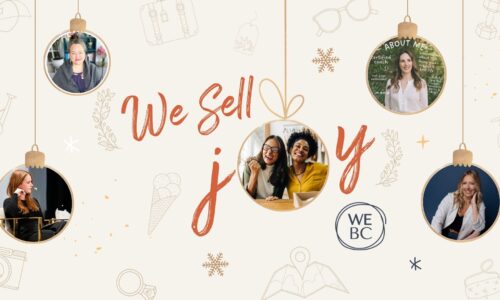Alissa Assu, RavenSong Soap, Bear Essential Oils, and West Coast Wildflowers, Campbell River
Campbell River
Alissa Assu transitioned her love of sport as a former athlete to a career with the Indigenous Sport, Physical Activity & Recreation Council (ISPARC), helping to improve the health and well-being of BC’s Indigenous people. When the pandemic shifted her role online, she was no longer engaging with the community and felt something was missing. She transitioned from a career in sports to curating a wellness and lifestyle boutique that focused on amplifying the voices and stories of BIPOC families and other talented Canadian artisans.
In 2020, West Coast Wildflowers opened in Campbell River, offering high-quality, locally-made products for families, including apparel, jewelry, home decor, artwork, and more. On her entrepreneurial journey, Alissa and her partner Cody Assu also invested in RavenSong Soap and Candles to reconnect with plant medicine and Indigenous knowledge while embracing a mentorship role to learn and share the cultural stories behind the brand.
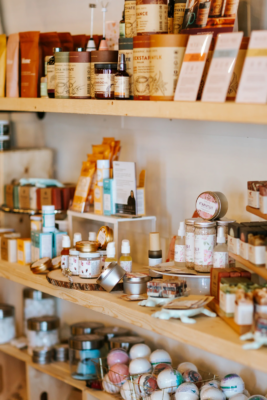
Alissa didn’t stop there, she has dedicated herself to educating her community and beyond about the unique lens of Indigenous business ownership. Through workshops and speaking opportunities, including the “Reconciliation and Resilience Fireside Chat” with WeBC, Alissa shares her journey and the challenges faced by Indigenous women in business. She emphasizes the importance of reconciliation and cultural understanding while addressing how well-intentioned efforts can sometimes be harmful. She is bridging the gap in knowledge and understanding for future generations.
Looking to scale her business and improve her understanding of finances, Alissa joined WeBC’s One-to-One Mentoring program. She felt the mentorship program would be another channel to express herself authentically while learning from a mentor. After being matched, Alissa’s mentor introduced her to valuable contacts outside her network, which helped her achieve her business goals and further her learning. The support and connections Alissa gained from the program reinforced her confidence, empowering her to pursue her goals, both big and small.
Client Q&A
Q: Tell me about RavenSong Soap, Bear Essential Oils, and West Coast Wildflowers.
A: RavenSong Soap and West Coast Wildflowers are both retail businesses with multiple locations. We have West Coast Wildflowers in the downtown core of Campbell River and RavenSong in Willow Point. RavenSong also has a manufacturing warehouse and our products retail at circular fashion Canadian brands such as Anian. We also have Bear Essential Oils, which is wellness brand that honours cultural knowledge, community spirit and self-care. We pride ourselves on offering 100% pure, organic, ethically sourced and wildcrafted essential oils.
West Coast Wildflowers offers a variety of products, from ice cream made in Victoria to clothing from Aniàn, which focuses on circular fashion. We also carry sustainable cleaning products from Nature Bee, along with RavenSong products. I’m proud to include other Indigenous sisters and cousins in this space.
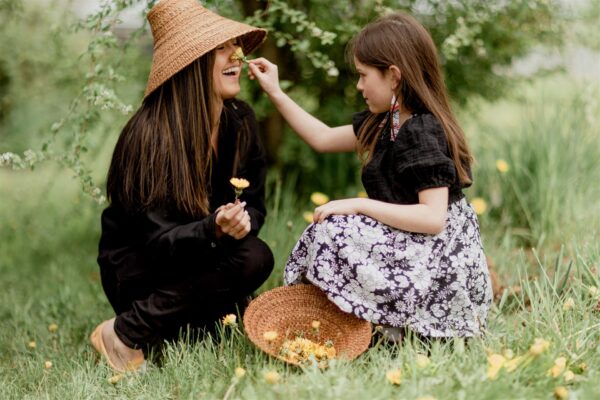
Q: What do you want others to know about your experience as an Indigenous entrepreneur?
A: I’ve learned some harsh lessons in the past three and a half years. When non-Indigenous women say “I don’t see colour” to Indigenous women, it can be particularly harmful because it dismisses the unique cultural identity and experiences of Indigenous women, who often face both racial and gender-based discrimination.
This phrase suggests a refusal to acknowledge the historical and ongoing impact of colonization, racism, and systemic inequality that Indigenous women experience. By claiming not to see race, non-Indigenous women may unintentionally perpetuate the erasure of Indigenous women’s voices and struggles, overlooking the ways in which race and culture shape their daily realities. It can also create a barrier to meaningful solidarity, as true allyship requires recognizing and addressing the specific challenges that Indigenous women face in a racially stratified society.
One of the hardest lessons for me has been figuring out who is a true ally, versus someone who is a performative action ally, versus those who are willing to sit beside us, learn, and be uncomfortable, knowing that there are better ways to approach these conversations.
I’ve had to become more unapologetic about my perspective. Before, I felt nervous about upsetting non-Indigenous women. But there is a community out there ready to support you, and if someone says, “I don’t see you as an Indigenous woman in business,” then that’s not a safe community to be part of.
Q: How did you find WeBC?
A: It’s been so long, I don’t really remember how I found WeBC, but I’m so grateful I did. One thing that non-Indigenous organizations, including WeBC, excel at is recognizing the significant power they have in Indigenous communities. What I mean by that is there are many pretenders out there, and we need to be very mindful and careful about who amplifies Indigenous voices. For instance, has that person or organization ever harmed someone in the Indigenous community? There are all of these multi-layered considerations.
What I’ve witnessed in non-Indigenous organizations is a tendency to just try to find someone to fill that ‘Indigenous gap’. I appreciate the work WeBC is doing to ensure Indigenous women have the opportunity to share our stories. It’s so important that we are connected to our communities and that our communities know us.
Q: Why did you decide to take the One-to-One Mentoring program?
A: I wanted to take the program to understand financials better. My husband and I are building our house, making it harder for us to secure business loans, even when our numbers show we’re growing.
The most valuable aspect of the program was the connections my mentor helped me make with important contacts outside of our usual circles. For many Indigenous people, our networks don’t include family members who work at banks. We often discuss the challenges of launching new businesses when living in a community struggling with poverty. It’s a different reality. The mentorship through WeBC helps us access those circles and resources.
Q: Were there any major successes coming out of the program?
A: It reinforced my belief that I can continue on this path and that my vision isn’t crazy. It showed me that my goals and the returns on investment I’m looking for must align with my business pursuits. I feel empowered to ask for help when I need it and know I’m not asking for too much.
Q: If you were to advise anyone starting their own business, what advice would you give?
A: I would say start with creating a vision and leadership board for yourself. It doesn’t have to be massive, but something to remind you what you’re working toward.
I’m in the middle of building a visionary leadership board that includes a lawyer and financial advisor. It’s important to have someone to lean on who’s done these things before. In the beginning, it could be just one person so you have a circle to rely on. I’m looking at it from a lens to protect yourself and your family, and an outside party can help you make the right decisions.
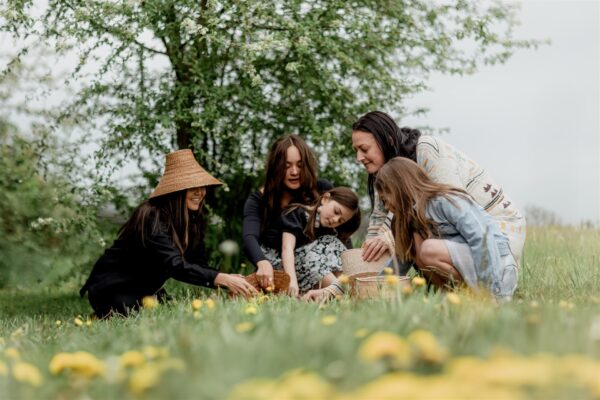
Where to Find West Coast Wildflowers
Where to Find RavenSong Soap
Where to find Bear Essential Oils

